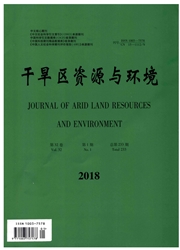

 中文摘要:
中文摘要:
基于总量控制的省域配额分配是我国碳减排的现实途径。本文先从公平角度出发,采用世袭制、平等主义和支付能力原则对碳排放进行分配,然后赋予三者同等权重进行加权组合,获得2020年我国省域碳排放配额初始分配值;然后考虑就业人员的社会效应、其他能源对煤炭的替代效应,构建存在非任意变化量的零和收益NDV-DEA模型进行优化,实现碳排放总量约束下的省域分配方案效率最优。分配结果表明,方案基尼系数小于0.2,有效实现了公平与效率。结合各省碳排放强度下降比例值,将30个省划分为四类,提出每类省份的碳减排建议。
 英文摘要:
英文摘要:
Provincial allocation of carbon emission quotas based on total amount control is a realistic way to realize carbon reduction in China. In this research, the hereditary, egalitarianism and payment principles from the perspective of fairness, weighted equally, were adopted to obtain initial allocation for provinces in 2020. Then, considering the employment effect and other energy substitution effect on coal, a non - discretionary variables Da- ta Envelopment Analysis ( NDV - DEA) model was built to optimize the allocation which finally achieves optimal efficiency under the total restriction. Results showed that the Gini coefficient of the allocation was less than 0.2, which means fairness and efficiency were achieved. Combined with reduction proportion value of carbon intensi- ty, 30 provinces were divided into four classes and corresponding suggestions for carbon reduction were put forward.
 同期刊论文项目
同期刊论文项目
 同项目期刊论文
同项目期刊论文
 期刊信息
期刊信息
